Big Basin Redwoods State Park was burned badly in the CZU Lightning Complex fire in 2020. The fire destroyed all of the park infrastructure and burned many of the iconic Coast Redwood trees in this beautiful park. I’m happy to say that several trails in the park have been opened to the public! We visited the park to look for some late season wildflowers in early October 2022.
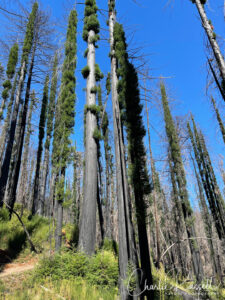
Please note that there is a reservation system in place (as I’ll describe below), so you have to plan ahead if you are going to visit.
The Flowers
Here’s a sample of a few of my favorites from this hike (click on the image to see a larger view).
Here’s my favorite find of the hike, Western heart’s ease. What a wonderful name for this beautiful wildflower! Native to California and Oregon, there was one very robust patch of these on the upper reaches of the Dool trail.
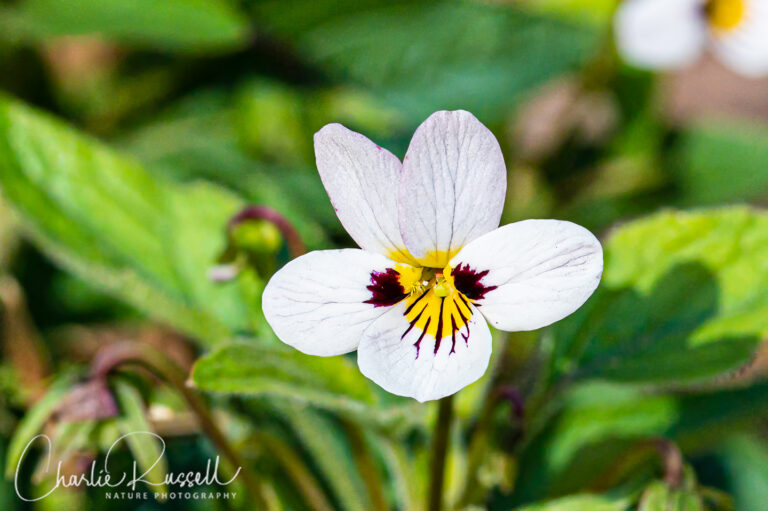
Another surprise for this late in the season, a small number of Redwood violets still blooming in the shadier portion of the trail. It is a perennial plant and it is easily distinguished from other native yellow violets by the stolon-like stems.
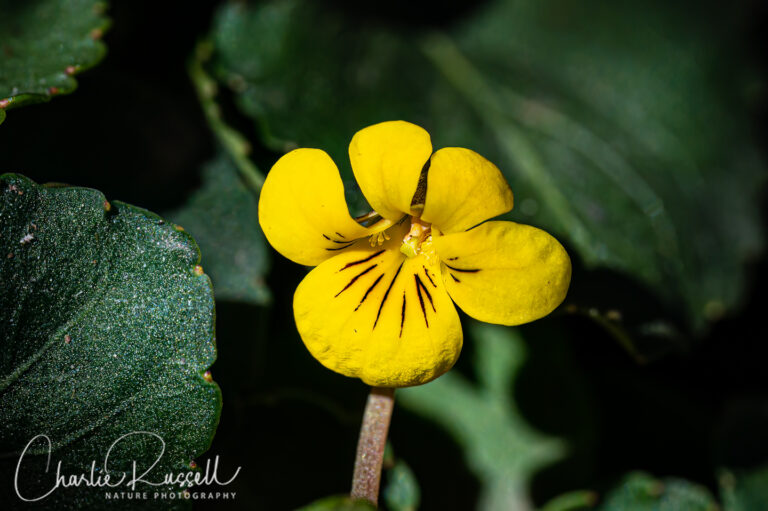
One of the most common flowering plants along this trail was the Panicled willow herb. Hard to get a good photo because they are tall plants and they wave about quite a bit.
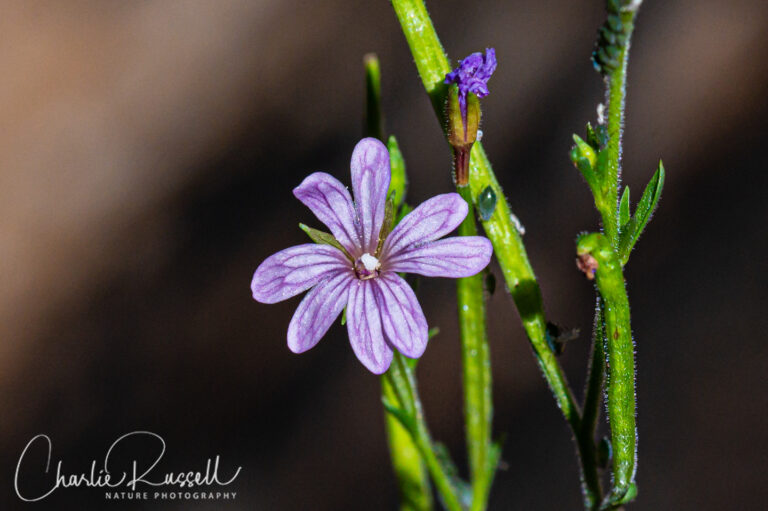
Here’s a collection of photos of some of the plants and other things that we found on this hike. For the best viewing experience, click on the lightbox image below, and then you can scroll through larger versions of the photos. All photos are available for purchase in a variety of formats.
Fire Recovery and Park Access
Big fires, like the CZU Lightning Complex fire (started in August 2020), can be devastating. While many of California’s native plants are adapted to periodic burning, the fires we are seeing now are burning hotter and longer than these ecosystems can handle.
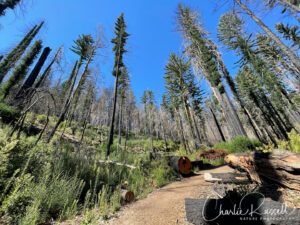
This fire destroyed much of the infrastructure in the park, and we are fortunate that the California Department of Parks and Recreation (California State Parks), along with many other organizations, have been able to reopen parts of Big Basin Redwoods State Park. See the Reimagining Big Basin website for the latest information on the park, and the plans for how it will be reopened.
Starting in late July 2022 the park opened several trails for public access. This includes the Dool trail (which is what this post is about), the short Redwood Loop trail (an easy, level, one mile hike), and 18 miles of park fire roads that are open to hiking and biking. Check the Big Basin Redwoods website for the latest information.
At the time I’m writing this there are two ways you can gain entry to the park:
- If you drive to the park you must have an advanced parking reservation. If you just drive up to the park gate without a reservation, you won’t be allowed to park. It is not possible to park on roads outside the gate. The fee is $8 and there is limited space. In October on a weekday we had no problem getting a reservation. Go to the Big Basin Redwoods website for a link to the reservation system.
- You can take public transportation during the summer months via Santa Cruz Metro. No entrance fee or park reservation is required. I assume this also means that a friend could drop you off at the park gate, but keep in mind that this is a looooong drive out in the mountains.
The Hike
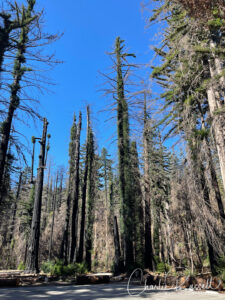
On this visit we took the Dool trail for a 3 mile out-and-back hike. It is a steady uphill hike with about a 660 foot elevation gain, but it felt like more! We didn’t make it to the ocean view summit, unfortunately. This time of year, it wasn’t very crowded.
The Dool trail starts at the northwest corner of the parking lot. In a way, it is a depressing start, since the trees are so heavily burned. On the other hand, it is great to see that the redwoods aren’t TOTALLY dead. Lots of sprouts showing green here! This is called “epicormic sprouting”
In a short while you will come to a fork in the trail. Take the left option for Dool – the right option is for a trail that isn’t open beyond a fire road that is close by (at the time I’m writing this).
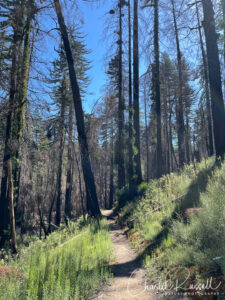
As you start to climb higher, you’ll see that there is a LOT of undergrowth that is coming back. Lots of sunlight is reaching the ground!
This time of year, the most prevalent species are horseweed and a pretty pink willowherb, both native. But when we looked closely along the trail we found a few hidden gems.
At roughly 1.5 miles up the Dool trail runs into Middle Ridge Road, a wider dirt fire road that continues up the hill. Fewer redwoods up here. More Douglas fir, tanoak, and shrubs. These other kinds of trees aren’t recovering as quickly from the fire, compared to the redwoods.
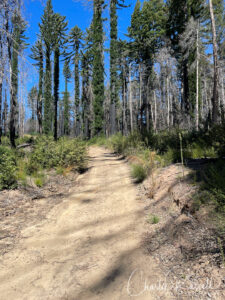
If you continue up the road you’ll reach the Ocean View Summit. Unfortunately we didn’t have the energy to make it that far, and the shadows were getting longer. That is a good target if you are looking for a reasonable hike. If you want a longer hike you can continue on and can make a long loop on the fire roads, but that is probably a hike of 12 miles or so.
Here’s the track that we followed:
Big Basin Dool Trail
Profile
Description
Move your mouse along the elevation graph to show the location on the map. The Refresh icon will re-center the map. The Expand icon will expand to full screen.
Directions
Big Basin Redwoods State Park is located in Santa Cruz County, far out into the mountains. We came from the San Jose area on Highway 17 and then headed west on Bear Creek Road towards Boulder Creek. That is where you join Highway 9 (going south) for about 0.2 miles, then turn right (west) onto Big Basin Way (Highway 236). This is a somewhat narrow and winding road (but not bad) that you follow for 9 miles until you see the parking lot for Big Basin Redwoods State Park. Keep in mind that if you drive to here, you need a park reservation. There is NO parking on the road outside of the park.
If you are coming from Santa Cruz you will take Highway 9 up to Boulder Creek.
There are portable toilets available at the parking lot, just behind the information kiosk. Pretty much all infrastructure was burned in the 2020 LZU fire, and it is going to take a lot of time to rebuild. When we visited the information kiosk was staffed, which we appreciated.
Timing is Everything
Fall is a great time to be in the Santa Cruz mountains. No fog! No clouds! It was a wonderfully pleasant day with temperatures starting in the upper 50’s, getting up to about 65 or so. Almost no wind. Normally I wouldn’t think of this as a wildflower spot in early October, but we did find some fun wildflowers along the trail.
Big Basin Redwoods Wildflowers
Here’s a listing of the native plants that we found on this visit.
The ones listed in color are endemic to California (that is, found only in the California Floristic Province). “nif” means “not in flower”. In most cases the scientific name will be a link to a reference source such as Calflora.
- American black nightshade, Solanum americanum
- Bush poppy, Dendromecon rigida
- California bee plant, Scrophularia californica (nif)
- California hedge nettle, Stachys bullata
- California huckleberry, Vaccinium ovatum
- California fuchsia, Epilobium canum ssp. canum (on Redwood trail)
- California milkwort, Rhinotropis californica (Polygala californica)
- California Yerba Santa, Eriodictyon californicum (nif)
- Calystgegia sp. (on Redwood trail)
- Ceanothus sp. (nif)
- Coast redwood, Sequoia sempervirens
- Cottonbatting plant, Pseudognaphalium stramineum (on Redwood trail)
- Douglas fir, Pseudotsuga menziesii
- Fragrant Everlasting, Pseudognaphalium beneolens (nif)
- Hairy brackenfern, Pteridium aquilinum var. pubescens
- Horseweed, Erigeron canadensis
- Iris sp. (nif)
- Pacific madrone, Arbutus menziesii
- Panicled willow herb, Epilobium brachycarpum
- Redwood sorrel, Oxalis oregana (nif)
- Redwood violet, Viola sempervirens
- Tanoak, Notholithocarpus densiflorus
- Western heart’s ease, Viola ocellata
The following are non-native plants that we found on the hike as well:
- Bull thistle, Cirsium vulgare
- Prickly lettuce, Lactuca serriola
- Rough cat’s ear, Hypochaeris radicata
We also found the following:
- Convergent Lady Beetle, Hippodamia convergens
- Spotted Cucumber Beetle, Diabrotica undecimpunctata
- Tuberous Polypore, Polyporus tuberaster (mushroom)
- Umber Skipper, Lon melane
- Western Fence Lizard, Sceloporus occidentalis


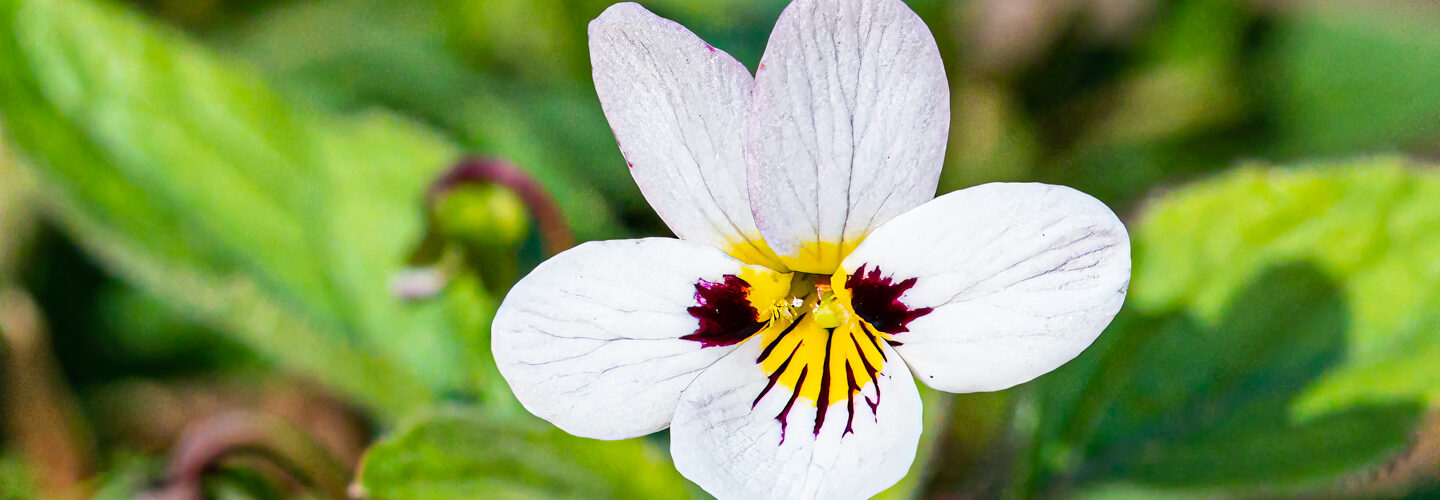
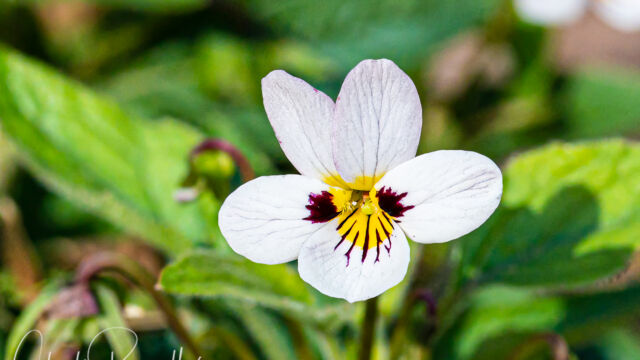
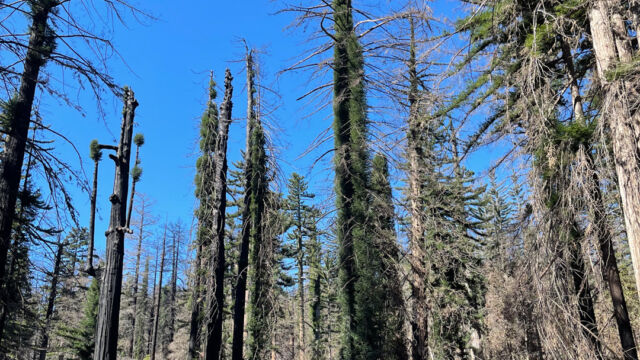
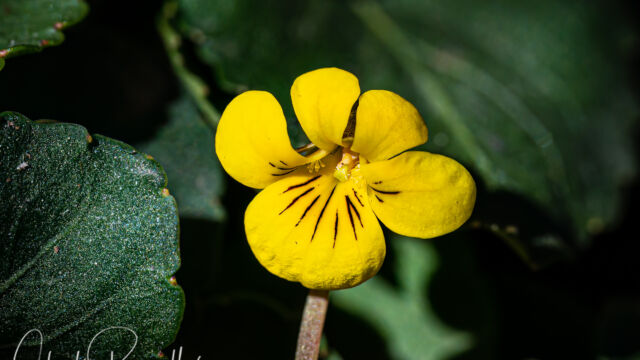
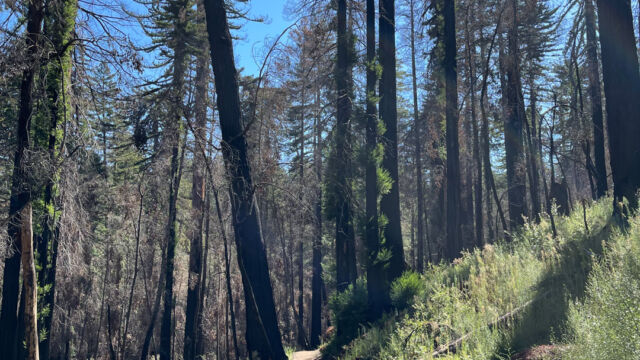
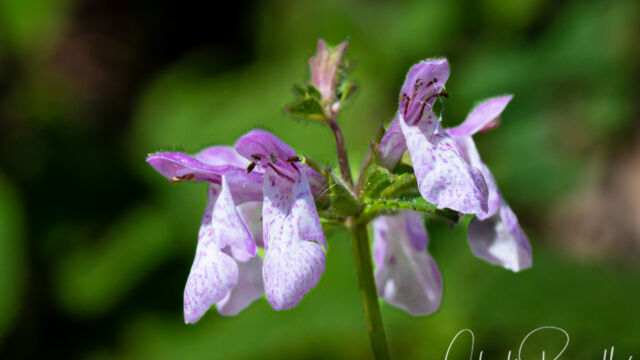
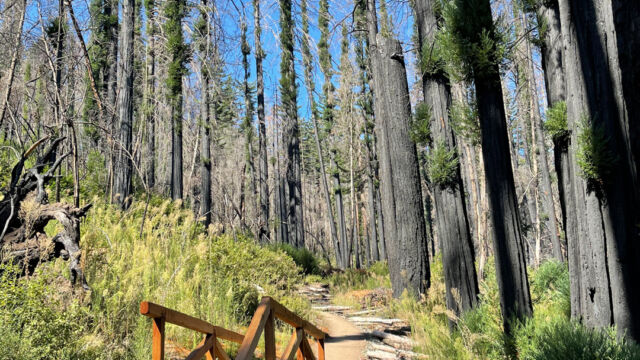
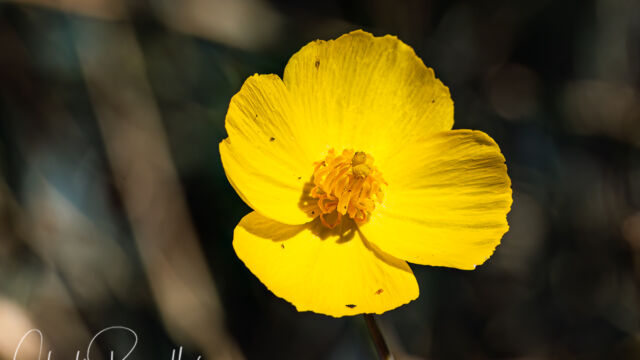
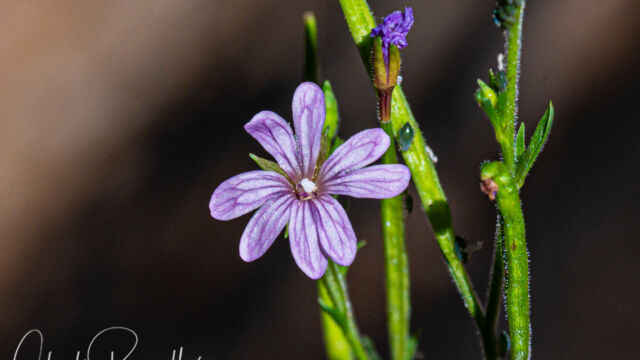
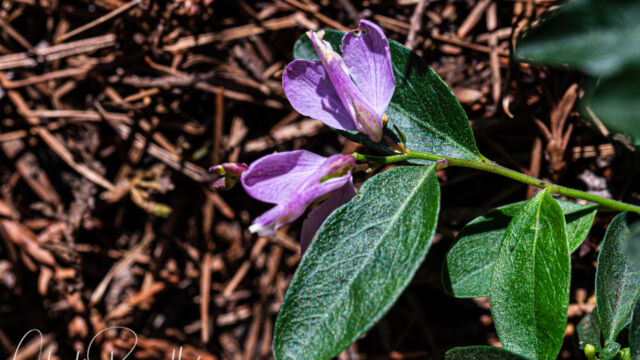
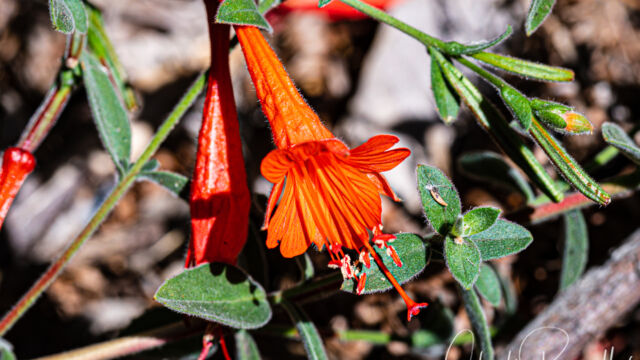
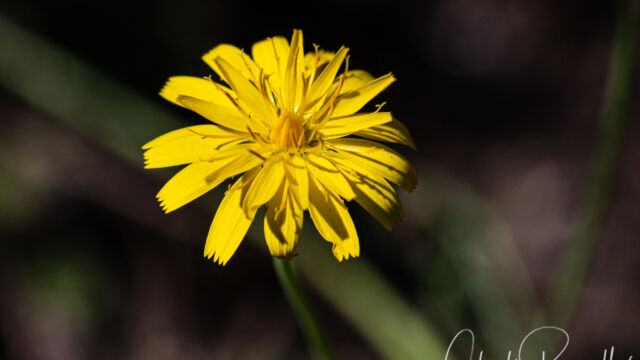
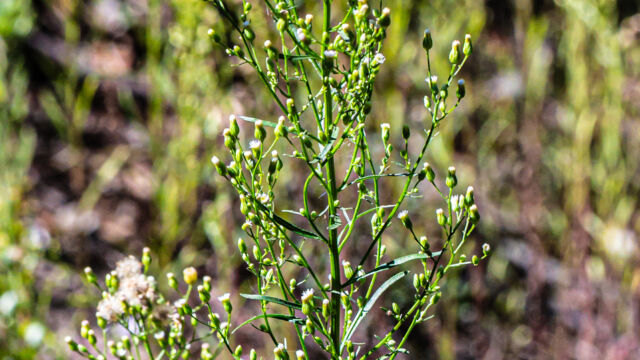
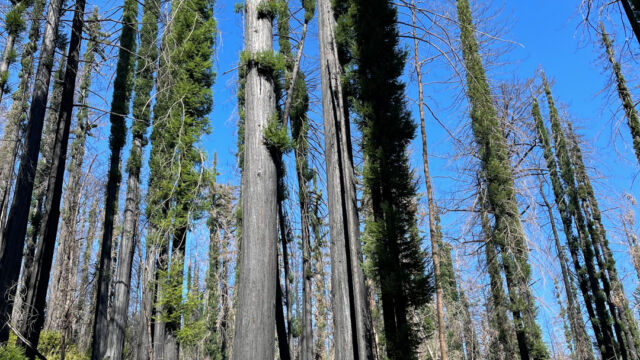
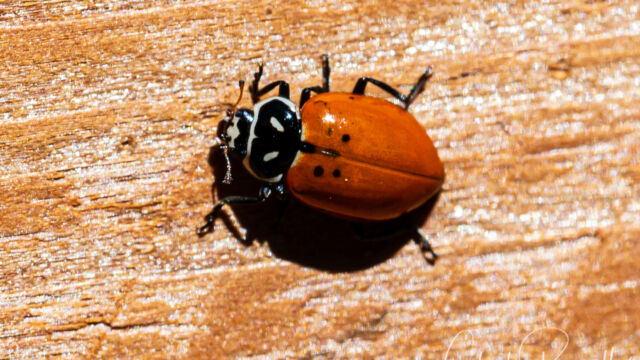
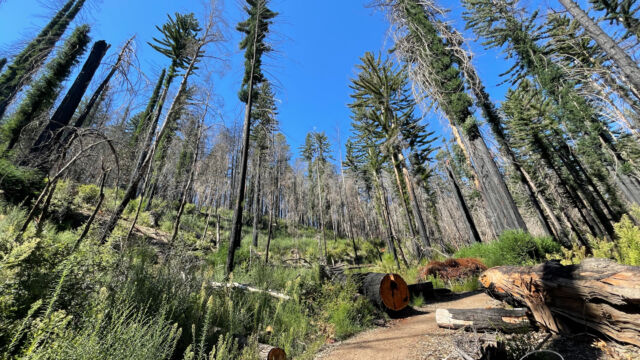
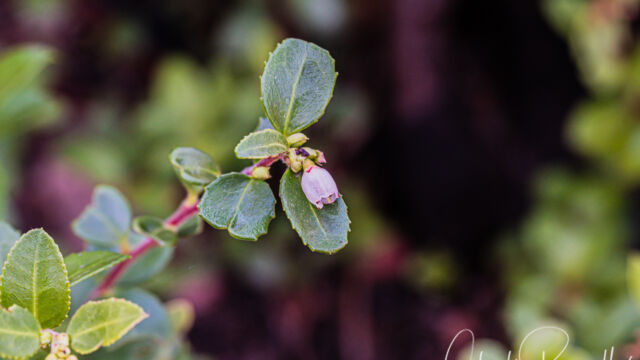
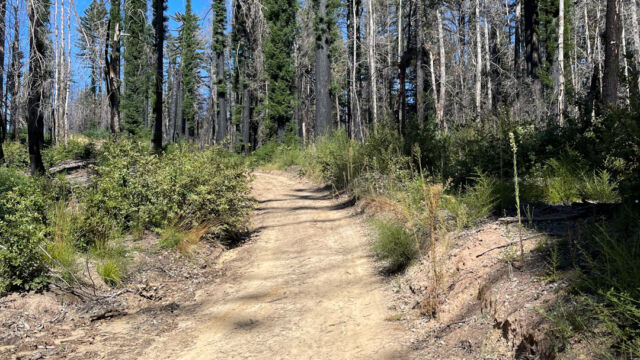
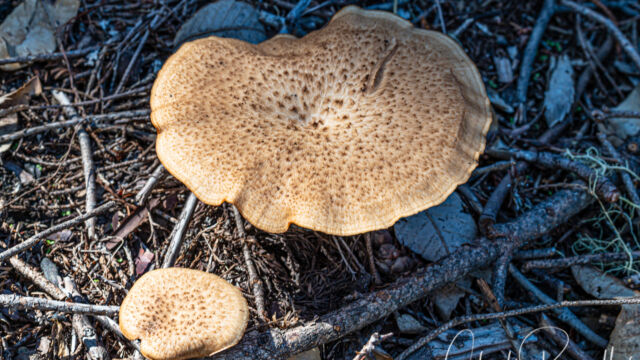
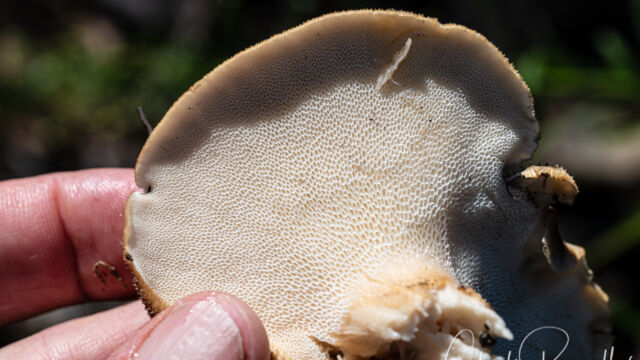
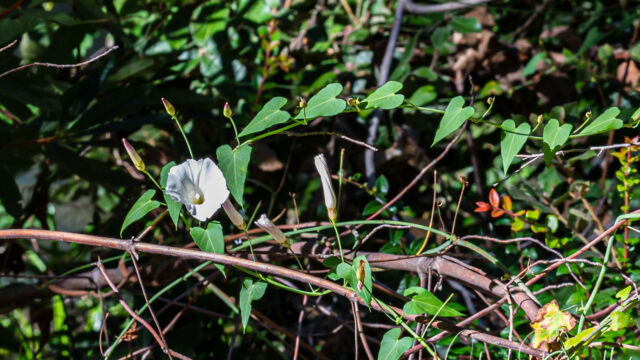
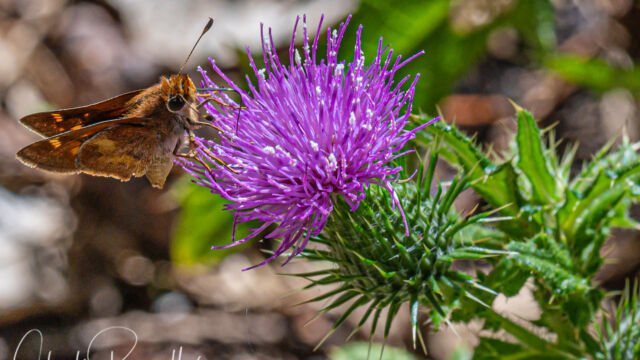
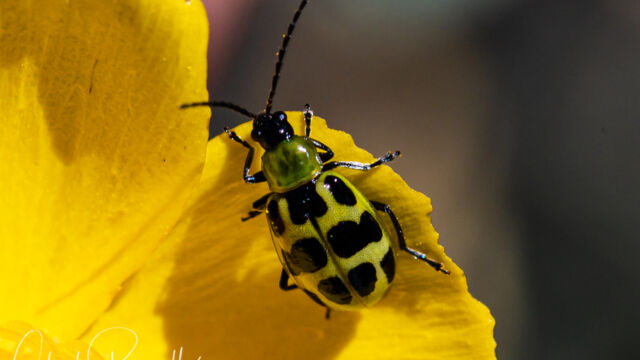
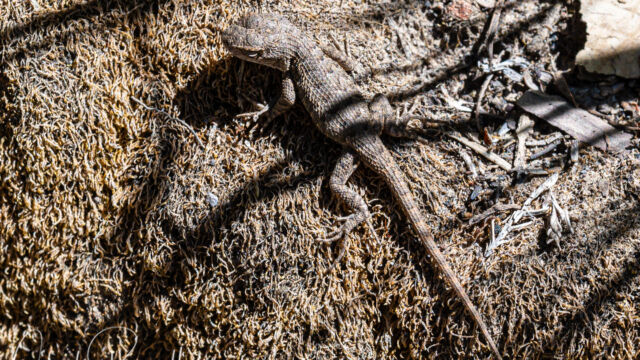
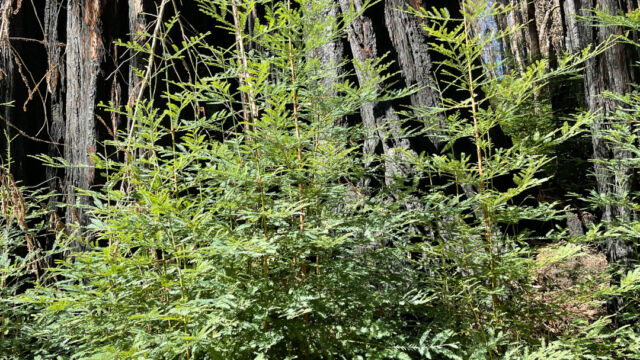
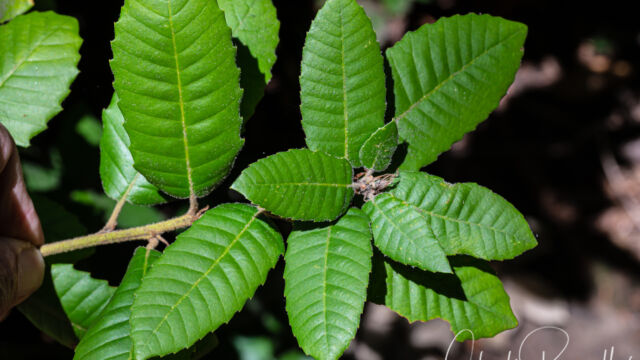
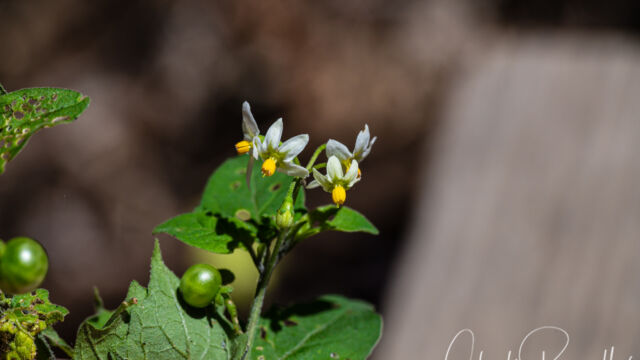
How incredibly helpful you are on top of providing gorgeous wildflower photos. Happy trails!
I’m glad you like the article! I have many more to post, when I can find the time.